We sleep better at night knowing that Marso Living is doing its part to protect our planet. That's why all our bedding and textiles exceed the Oeko-Tex certification.
Today, consumers are becoming more and more aware of how their products are made. This has prompted manufacturers to adopt cleaner, more ethical and socially responsible production processes. So if you've recently bought a piece of bedding or a piece of clothing with the Oeko-Tex seal, you're probably curious as to what it means and how important it is.
The renowned International Oeko-Tex Association based in Zurich has existed since 1992. It is now active in over 40 countries. Their various certifications and standards, including the Oeko-Tex Standard 100, have become a guide to consumer safety.
When it comes to product safety and social responsibility, Oeko-Tex is one of the most well-known labels in the world. That's why it's important to know what Oeko-Tex stands for, what it certifies and how it differs from other standards on the market.
Here we have put together a practical guide for you on the subject of Oeko-Tex. If you're wondering which products can be Oeko-Tex certified or if Oeko-Tex is better than organic, then you've come to the right place. Below you will find the answers to these and other Oeko-Tex questions. 
What is Oeko Tex?
The International Oeko-Tex Association was founded in Switzerland in 1992 to address growing concerns about product safety around the world. In the same year, the organization introduced its most famous certification - the Standard 100. Products bearing this label are free from high concentrations of over 100 pollutants considered dangerous to humans and the environment.
It is important to know that every component of the product is tested. This means that every button, zipper, lining and even special coatings applied to the finished item are tested separately for the same chemicals. This is important because if you dry yourself with a towel or sleep in sheets, any toxic substances that have been applied to it can be absorbed into your body. So when you buy products with the Oeko-Tex Standard 100 label, you have a guarantee that the textiles you use to dry yourself or sleep in are safe.
The criteria for the Oeko-Tex Standard 100 are reviewed and updated every year. Because it is a global standard, certification requirements are universal regardless of country. Companies wishing to have their products certified submit a voluntary application. Eighteen independent laboratories around the world test the products. After 12 months, manufacturers must reapply to update their Oeko-Tex certification. You can check the validity of any current Oeko-Tex label online .
Is Oeko-Tex better than organic?
Oeko-Tex certifies the safety and "cleanliness" of an end product and its components. For example, let's say you buy Oeko-Tex certified bed linen. In this case, you can be sure that no harmful chemicals were used in the processing of the fabric. But Oeko-Tex certification is not the same as organic. It is better.
Unfortunately, the term "organic" is incredibly overused and, worse, abused these days. There are no uniform rules that manufacturers have to follow to label their products as organic. That's why it's better to buy Oeko-Tex certified products than to look for an "organic" seal.
It is also important to note that Oeko-Tex certification does not measure thread count (TC). In other words: your Oeko-Tex certified home textiles do not have a higher thread count. But the good news is, you don't need them either. Good quality bed linen made from high-quality cotton does not need more than 400 threads per square meter. To learn more about thread count, read this post: The Truth About Thread Count (It Doesn't Matter) .
What is the Oeko-Tex Standard 100?
The Standard 100 was developed by the International Oeko-Tex Association in the 1990s and is the best known and most reliable certification for product safety. It is awarded to items that have been tested free of high concentrations of over 100 toxic substances.
The aim of this independent certification system is to offer consumers a uniform and reliable way of buying harmless products.

The harmful substances for which all products certified according to Oeko-Tex Standard 100 are tested include formaldehyde, nickel and azo dyes. Many substances that are not prohibited by law but are suspected of being harmful to people and the environment are also on the list. These include allergenic dyes and synthetic plasticizers (phthalates). In many cases, the Oeko-Tex test criteria and limit values are much stricter than national or international standards.
Textiles for babies and toddlers are also tested for "color bleeding" through sucking and nibbling simulations. Materials used for bulky products such as furniture are also screened for hazardous air emissions.
Eighteen independent laboratories worldwide carry out the tests. The standard 100 is granted for one year. After this period, the certification must be renewed.
Which products can be Oeko-Tex certified?
The renowned International Oeko-Tex Association certifies textile products and their components. Some of the most common items that can be awarded the Oeko-Tex seal are clothing, home textiles such as Oeko-Tex bed linen, Oeko-Tex pillows or Oeko-Tex duvets.
Because you use these products on a daily basis, it's important to invest in bedding and linens that don't pose a risk to you and your family's health.
For example, if you're a new parent, you'll want to make sure your little one is wrapped up in an Oeko-Tex certified hooded bath towel or blanket that's gentle on the skin and won't cause allergies, rashes, or respiratory problems.
It is similar when you buy a duvet that you will use for years to come. It's safest to buy one that's made without toxic materials like formaldehyde that manufacturers often use to achieve a wrinkle-free look.
If you would like to find out more about our Oeko-Tex bedding and linens and how to choose the perfect duvet and linen, check out our blog in the Learn More section .
 Where can you buy Oeko-Tex certified home textiles?
Where can you buy Oeko-Tex certified home textiles?
When it comes to luxury, high quality and Oeko-Tex certified bedding, bed linen and bathroom textiles, you'll find a refreshing selection of the finest products at Marso Living . The bedding you will find there are free from bleach and toxic dyes, making them safer not only for people but also for the environment.
Marso Living products are made from 100% high quality cotton or flax that is sustainably grown and spun into luxury towels and the finest bed linen in family mills in Europe. Whether you are looking for comfortable sheets or beautiful duvets, at Marso Living you will find a selected selection of chic, Oeko-Tex certified products.
High-quality materials are at the heart of home textiles. Whether satin or linen, Marso Living can help you find the perfect Oeko-Tex certified bed linen for your home.
And because parenting is stressful enough, Marso Living also helps new moms and dads find soft, non-toxic products for babies and toddlers .
More frequently asked questions about Oeko-Tex
Here are some frequently asked questions about Oeko-Tex certification.
Which materials are Oeko-Tex?
Oeko-Tex tests and certifies products made from textiles. This includes clothing, accessories, home textiles, furniture and other interior items. Any fabric can be Oeko-Tex certified, provided it meets the organisation's stringent testing requirements. You can find the Oeko-Tex label on a variety of items, e.g. B. on a silk blouse, a polyester dress, a cotton pillowcase, leather pants or a down comforter.
Is Oeko-Tex waterproof?
Yes, certain fabrics can be waterproof and Oeko-Tex certified. But not all Oeko-Tex certified fabrics are waterproof.
How much does Oeko-Tex cost?
Companies pay to have their products tested and certified by the International Oeko-Tex Association. There are no additional costs for the end user as a result of the certification.
How do I clean my Oeko-Tex products?
Oeko-Tex certified materials and products should be cleaned according to their care label. Here you will find our tips and tricks for your Marso Living textiles.

